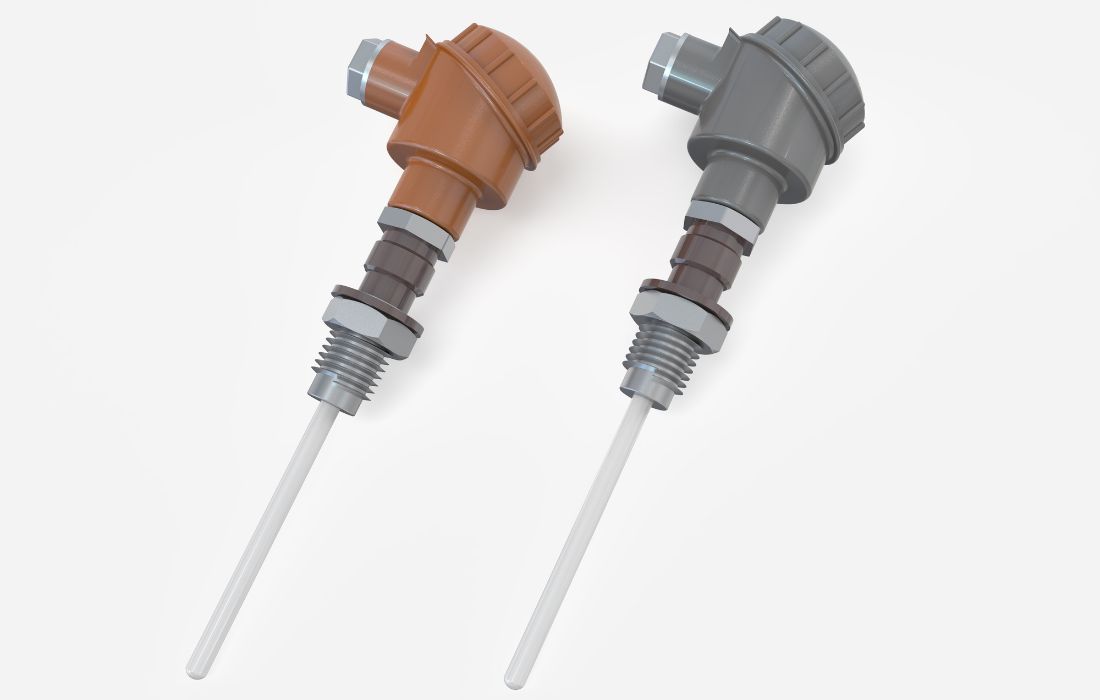Industrial thermocouple is an essential tool for measuring and controlling temperature in various manufacturing processes. But what exactly are industrial thermocouples, and why are they so crucial in the manufacturing sector? These devices are known for their accuracy, durability, and ability to handle wide temperature ranges, making them vital for industries that require precise thermal management. This article explores the basics of industrial thermocouples, their applications in manufacturing, and upcoming trends in thermocouple technology, along with insights from industry professionals and recent innovations.
Understanding Industrial Thermocouple: Basics and Types
What Is an Industrial Thermocouple?
An industrial thermocouple is a temperature sensor made of two different metal wires joined at one end. When the junction experiences a temperature change, it generates a voltage that relates to temperature through known calibration standards. This process, called the Seebeck effect, forms the basis of thermocouple operation.
Types of Industrial Thermocouples
Different types of
industrial thermocouples have unique properties and applications. Here are the most common types:
Type K (Chromel-Alumel): This thermocouple is popular for its versatility and can measure temperatures from -200°C to 1260°C. It is widely used in food processing and chemical manufacturing.
Type J (Iron-Constantan): Suitable for lower temperature ranges of -40°C to 750°C, Type J is often found in older equipment or applications where high accuracy is not crucial.
Type T (Copper-Constantan): With a range of -200°C to 350°C, Type T is excellent for cryogenic applications and situations where moisture is present.
Type R and S (Platinum-Rhodium): These thermocouples operate at high temperatures (up to 1600°C) and are commonly used in laboratories and high-end industrial processes due to their stability and accuracy.
Type N (Nicrosil-Nisil): Designed for high-temperature applications, Type N thermocouples resist oxidation in harsh environments.
Selecting the Right Industrial Thermocouple Sensor
Choosing the right
industrial thermocouple sensor depends on several factors, including temperature range, accuracy, environmental conditions, and specific application. Understanding these variables is crucial for effective temperature measurement. For instance, in a recent project, an automotive manufacturer reported improved paint quality by switching from Type J to Type K thermocouples, enhancing their process control significantly.
Precision Temperature Measurement in Manufacturing Processes
Importance of Temperature Measurement
Accurate temperature measurement is vital in manufacturing. It ensures product quality, enhances safety, and boosts efficiency. For example, in the food industry, maintaining precise temperatures during cooking and processing prevents spoilage and ensures food safety.
Applications in Various Industries
Food and Beverage: Thermocouples monitor cooking temperatures, pasteurization processes, and refrigeration systems. Proper temperature control is essential for food safety and quality.
Chemical Manufacturing: Precise temperature control is necessary for efficient chemical reactions. Industrial thermocouples monitor exothermic and endothermic reactions, ensuring processes stay within optimal temperature ranges.
Pharmaceuticals: The pharmaceutical industry relies on accurate temperature measurement during drug production and storage. Thermocouples are used in fermentation, crystallization, and sterilization stages.
Metals and Glass Production: In metal and glass manufacturing, thermocouples monitor furnace and kiln temperatures. Accurate readings help ensure product quality.
Benefits of Using Industrial Thermocouples
Industrial thermocouples provide several advantages:
Wide Temperature Range: They measure a broad spectrum of temperatures for diverse applications.
Durability: Thermocouples withstand harsh conditions, including extreme temperatures and corrosive environments.
Fast Response Time: Their design allows for quick temperature readings, crucial in dynamic manufacturing processes.
Enhancing Equipment Efficiency with Industrial Thermocouples
Improving Process Control
Industrial thermocouples significantly enhance equipment efficiency by providing accurate temperature readings that enable better process control. Continuous temperature monitoring allows manufacturers to make real-time adjustments, reducing waste and optimizing resources.
Preventing Equipment Failure
Operating equipment outside its specified temperature range can cause premature failure. By using industrial thermocouples, manufacturers can detect temperature anomalies early and take corrective actions, extending equipment lifespan.
Energy Savings
Accurate temperature control leads to substantial energy savings. For example, in heating applications, maintaining precise temperatures reduces energy consumption and lowers operational costs. Additionally, minimizing temperature fluctuations helps maintain process stability, contributing to overall efficiency.
Innovations in Industrial Thermocouple Technology
Advancements in Sensor Technology
The future of industrial thermocouples is evolving through advancements in sensor technology. New materials and designs enhance accuracy and reliability. For example, advanced ceramic materials improve performance in extreme environments.
Integration with IoT and Industry 4.0
Integrating industrial thermocouples with Internet of Things (IoT) technology is revolutionizing temperature monitoring. Smart thermocouples provide real-time data to manufacturers, enabling predictive maintenance and reducing downtime. This connectivity allows seamless integration with other systems, improving overall process efficiency.
Enhanced Calibration Techniques
Innovations in calibration techniques are emerging. Automated calibration systems ensure thermocouples remain accurate over time, reducing the need for manual calibration and minimizing human error.
Environmental Considerations
As industries pursue sustainable practices, the demand for eco-friendly thermocouples is rising. Manufacturers are exploring materials and designs that reduce waste and energy consumption while maintaining high performance.
Industrial thermocouples are vital in modern manufacturing, ensuring optimal temperature measurement and control. As industries evolve, advancements in thermocouple technology promise to enhance efficiency, reliability, and sustainability. By understanding the basics and applications of industrial thermocouples, manufacturers can leverage these tools to improve processes and outcomes. Whether in food processing, pharmaceuticals, or metal production, industrial thermocouples will continue to drive innovation in temperature measurement.
Incorporating the latest advancements can further enhance your understanding and application of industrial thermocouples, ensuring that your manufacturing processes remain efficient and effective.

